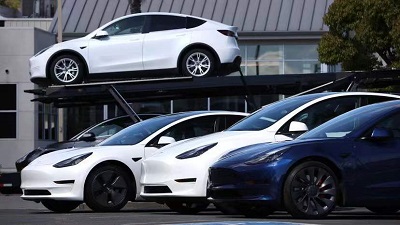Volvo and Northvolt intend to expand battery cooperation to the United States and Asia
Geely’s Volvo Cars and battery start-up Northvolt plan to invest 3 billion US dollars in cooperation, including the opening of factories and R&D centers in Europe, but they are not limited to Europe.
Volvo
Volvo Cars and Northvolt hope to extend their $3 billion battery cooperation to the United States and Asia. As traditional automakers accelerate their entry into the electric vehicle field, the two Swedish groups strive to gain a first-mover advantage over their competitors.

Volvo Cars is a newly listed high-end car manufacturer, and the start-up Northvolt is its partner, the latter’s first “super factory” in Europe is about to start production.
The two companies announced on Friday that they will set up a joint research and development center in Gothenburg as part of a 30 billion Swedish kronor (3.3 billion US dollars) investment, which will include the construction of another factory in Europe, which will be set in 2026. Put into production every year.
“If cooperation allows us to move faster than our competitors, then we want to take advantage of this-not only in Europe, but also in the Americas and Asia,” said Volvo CEO Hakan Samuelsson. “Nothing in our agreement limits us to Europe. Europe is our starting point, but of course we are manufacturing cars globally.”
Volvo, whose stock price has risen by a third since its initial public offering (IPO) in October, has one of the most ambitious electrification plans among traditional automakers. The goal is to reach 100% of electric vehicles by 2030. The number today is only 3%.
Northvolt
Northvolt, backed by well-known companies such as Goldman Sachs, BMW and Ikea, is the most advanced of many battery start-ups in Europe. Its first plant in northern Sweden will be put into operation this month, and the company has also established an extensive partnership with German car manufacturer Volkswagen.
Prior to this, Northvolt had long confined its ambitions to Europe. Its background was that the European continent sought to enter the battery race dominated by Asian companies and the US Tesla.
But Peter Carlsson, a former Tesla executive who now runs Northvolt, said in June that it was setting its sights on the United States and Asia when it first announced its partnership with Volvo.
Volvo has factories in China, where its main shareholder Zhejiang Geely is headquartered, as well as in the United States, Sweden and Belgium.
Carlson said: “So far, we have focused on Europe to a large extent. European customer base, trends and growth-these are fast enough, in terms of our ability to cope.” He added, because the platform of automakers is global, and looking at Asia and the United States is a “natural development.”
Global layout
Volvo has factories in China, where its main shareholder Zhejiang Geely is headquartered, as well as in the United States, Sweden and Belgium.
Carlson said: “So far, we have focused on Europe to a large extent. European customer base, trends and growth-these are fast enough, in terms of our ability to cope.” He added, because The platform of automakers is global, and looking at Asia and the United States is a “natural development.”
Samuelson emphasized that he believes that automakers have their own expertise in the field of electric vehicle batteries will be a key competitive advantage, just like the era of internal combustion engines.
“How fast you can charge the car, how long the cruising range-these will be decisive in the future… Yes, the ability of the battery will determine the competitiveness of the car,” he said. He added that in the future, battery cells may be directly assembled into the vehicle structure instead of being installed in the cylinder position.
Volvo and Northvolt will announce the location of the European battery plant early next year. The plant will start construction in 2023. After production, the battery capacity will be sufficient to supply approximately 500,000 cars.
Samuelson said they are investigating potential plant sites in Sweden and other European countries. Energy supply, logistics and the availability of skilled labor are all important factors.



